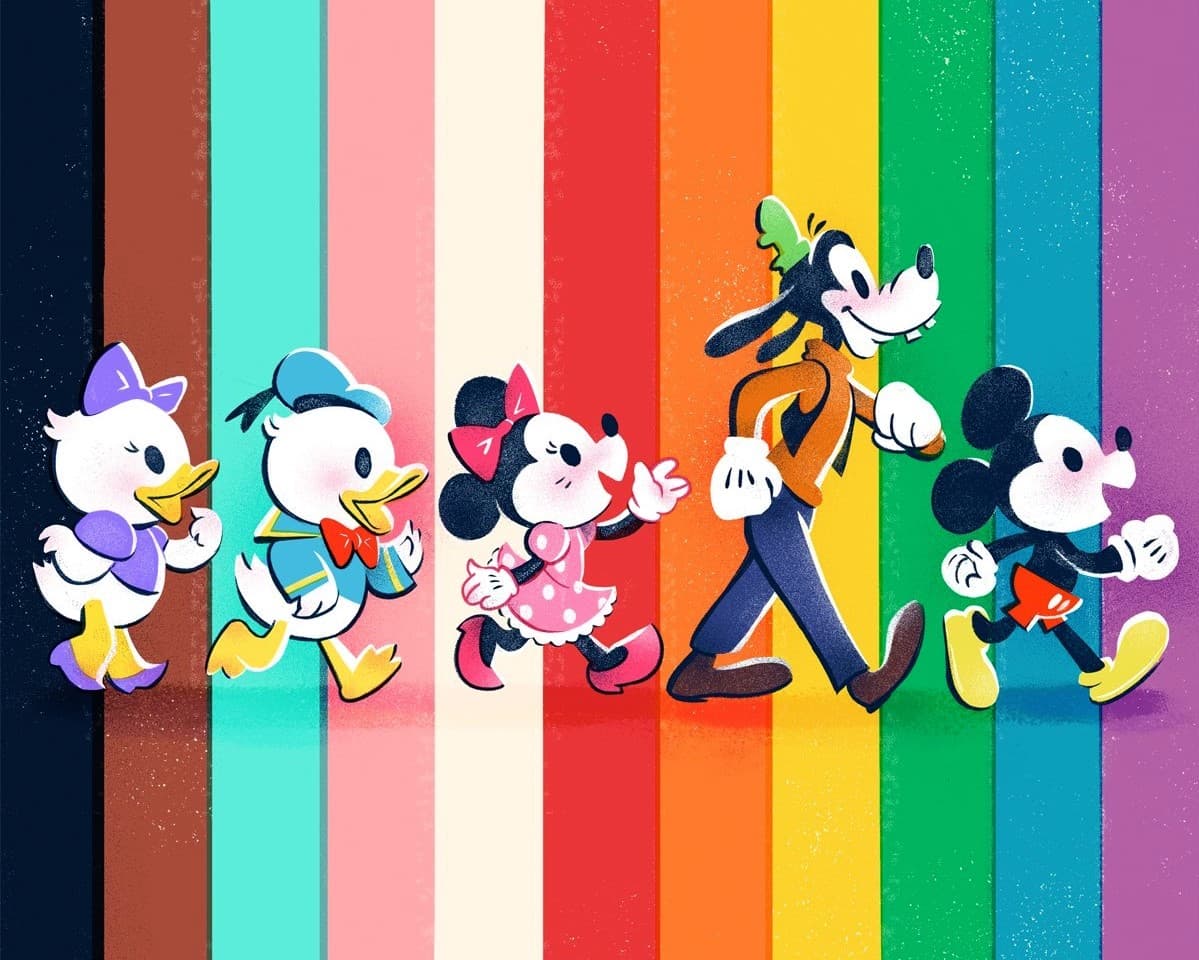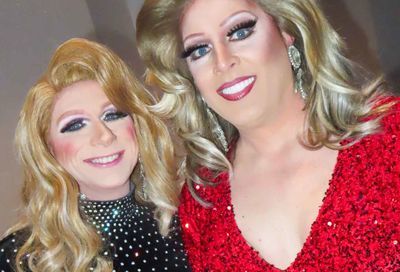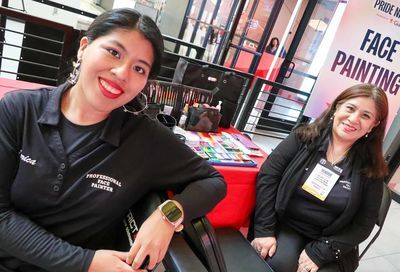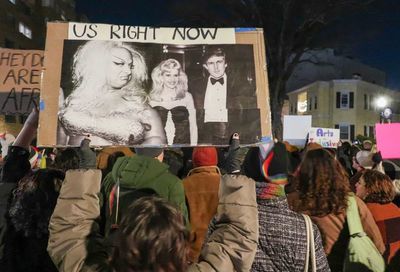LGBTQ community disproportionately impacted by COVID-19 pandemic, new polling says
LGBTQ people are more likely to be worried about COVID-19's impact on their finances, and more critical of government's response to pandemic

New polling data from the PSB Research and the Human Rights Campaign Foundation shows that the LGBTQ community is more likely to be negatively impacted economically by the COVID-19 pandemic.
According to PSB’s online poll, which surveyed 1,000 adults in the United States from April 15-16, LGBTQ people are more likely to have experienced a cut in work hours, to feel their personal finances are in worse shape due to the pandemic, and to be taking steps to actively prepare for the virus. LGBTQ people are also more likely to trust information from public health officials about the pandemic, and less likely to trust President Trump’s leadership.
According to the data, which was weighted to U.S. Census demographic targets and HRC-advised targets for sexual orientation and gender identity statistics, 30% of LGBTQ respondents reported that their work hours had been reduced, compared to 22% of the general population.
However, the LGBTQ population fares slightly better when it comes to remaining employed, with only 12% reporting they are unemployed, compared to 14% of the general population.
Twenty percent of LGBTQ people say their personal finances are “much worse off” than they were a year ago, compared to 11% of the general population. LGBTQ people are also twice as likely as the general population to believe their finances will be much worse off a year from now, with 10% expressing such fears, compared to 5% of the larger population.
As a result of those financial concerns, 42% of LGBTQ people have adjusted their household budgets, compared to 30% of the general population. Nearly 3 in 5 LGBTQ people, or 59%, report they are spending less due to the pandemic, compared to 53% of the general population.
LGBTQ people are also more likely to have checked if their bank account has an overdraft, and a higher percentage of LGBTQ people (11%) have asked for rent delays compared to the general population (8%).
The polling data appears to bolster assertions made in a March report issued by HRC finding that the pandemic poses greater risks to the LGBTQ community because its members are less likely to have health coverage, more likely work in industries that have been affected by social distancing or stay-at-home orders, and more likely to smoke or have asthma, or a variety of chronic illnesses, which leave their immune systems more vulnerable to the effects of the COVID-19 virus.
“It is unfortunately not surprising to see that the LGBTQ community is facing adverse economic impacts due to the COVID-19 pandemic,” HRC President Alphonso David said in a statement. “This new data bears out our initial predictions that LGBTQ people were likely to face greater economic hardship, and is more proof that the most marginalized communities are the most at risk. We have seen the health impact of this virus on communities of color, and we now have the data to show how the LGBTQ community is struggling.
“For those of us at the intersections of these identities, it is even more profound,” David added. “We must take this moment to fight for the resources to ensure that communities most impacted can weather this storm.”

“The COVID-19 pandemic has shined a light on many unfortunate realities we face in our society, as the virus has delivered disproportionate impact across various communities, including LGBTQ people,” Peter Horst, the CEO of PSB Research, said in a statement. “It’s yet another reminder of the importance of allowing data to speak the truths we need to hear in order to address our challenges, seize our opportunities and move forward together as a nation.”
The survey also examined LGBTQ people’s news consumption and gauged their trust in major institutions with respect to the COVID-19 pandemic. For instance, LGBTQ people report they are more likely to have taken steps to prepare for the pandemic, with 74% of LGBTQ people reporting they are paying closer attention to the news, versus 68% of the general population.
Sixty percent of LGBTQ respondents in the poll said they have conducted their own research on the virus, compared to 45% of the general population, and 27% of LGBTQ people have spoken with a doctor of other medical professional about the virus, compared to 14% of the general population.
LGBTQ people are more likely to have taken proactive measures to protect themselves, with 54% saying they are avoiding public transportation and 53% saying they’ve purchased face masks, compared to 44% and 43%, respectively, of the general population.
When it comes to trusting information about the virus from public officials, majorities of LGBTQ people say they trust the World Health Organization and the Centers for Disease Control and Prevention, whereas only 35% of the general population trusts the WHO and only 46% trust the CDC. Conversely, the general population has more faith in President Trump, with 22% saying they trust him as a source of information, compared to 14% of the LGBTQ population.
LGBTQ people are more likely to believe that state and local governments have botched the response to the pandemic, with a plurality, or 48%, of LGBTQ respondents saying they did too little to respond to the pandemic initially, and 47% saying that current actions by government actors are “too little too late.” The general population is much less cynical, with only 36% believing that the government’s response was insufficient when it comes to those same metrics.
While strong majorities of both LGBTQ people and the general population are likely to agree that we should expect more from both the federal government and employers during this time, LGBTQ people are much more likely to expect a more robust response from the federal government, with 93% expressing such sentiments, compared to 85% of the general population. When it comes to employers, 83% of LGBTQ people say they could do more, compared to 81% of the general population.
Read more:
The Next Wave: CVOID-19 could come back “with a vengeance” this fall
Nearly 1 in 5 Russians believe LGBTQ people should be “eliminated,” poll says
LGBTQ content features in eight of the ten most challenged books of 2019
Support Metro Weekly’s Journalism
These are challenging times for news organizations. And yet it’s crucial we stay active and provide vital resources and information to both our local readers and the world. So won’t you please take a moment and consider supporting Metro Weekly with a membership? For as little as $5 a month, you can help ensure Metro Weekly magazine and MetroWeekly.com remain free, viable resources as we provide the best, most diverse, culturally-resonant LGBTQ coverage in both the D.C. region and around the world. Memberships come with exclusive perks and discounts, your own personal digital delivery of each week’s magazine (and an archive), access to our Member's Lounge when it launches this fall, and exclusive members-only items like Metro Weekly Membership Mugs and Tote Bags! Check out all our membership levels here and please join us today!


























You must be logged in to post a comment.